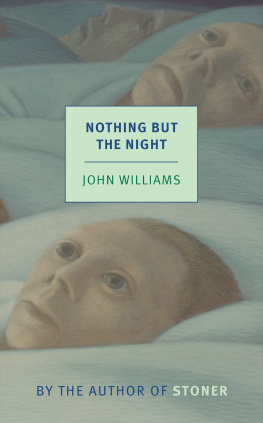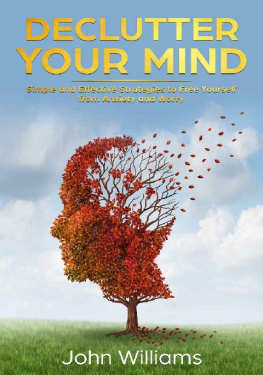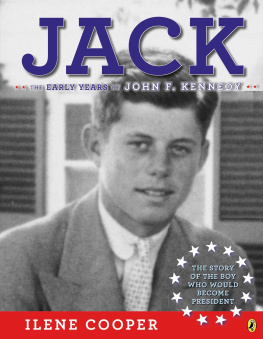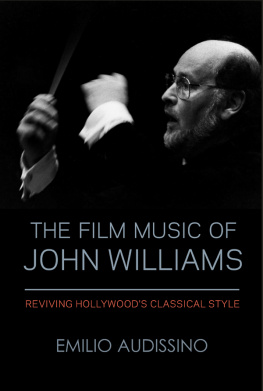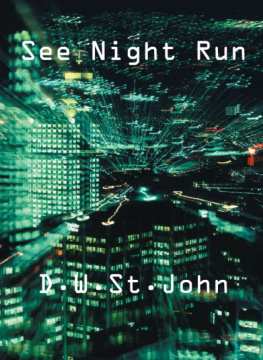JOHN WILLIAMS (19221994) was born and raised in northeast Texas. Despite a talent for writing and acting, Williams flunked out of a local junior college after his first year. He reluctantly joined the war effort, enlisting in the Army Air Corps, and managed to write a draft of Nothing But the Night, his first novel, while there. Once home, Williams found a small publisher for the novel and enrolled at the University of Denver, where he was eventually to receive both his BA and MA, and where he was to return as an instructor in 1954. He remained on the staff of the creative writing program at the University of Denver until his retirement in 1985. During these years, he was an active guest lecturer and writer, editing an anthology of English Renaissance poetry and publishing two volumes of his own poems, as well as three novels, Butchers Crossing, Stoner, and the National Book Awardwinning Augustus.
OTHER BOOKS BY JOHN WILLIAMS
PUBLISHED BY NYRB CLASSICS
Augustus
Introduction by Daniel Mendelsohn
Butchers Crossing
Introduction by Michelle Latiolais
English Renaissance Poetry: A Collection of Shorter Poems from Skelton to Jonson, Selected by John Williams
Introduction by Robert Pinsky
Stoner
Introduction by John McGahern
NOTHING BUT THE NIGHT
JOHN WILLIAMS
NEW YORK REVIEW BOOKS

New York
THIS IS A NEW YORK REVIEW BOOK
PUBLISHED BY THE NEW YORK REVIEW OF BOOKS
435 Hudson Street, New York, NY 10014
www.nyrb.com
Copyright 1948 by John Williams
Interview with Nancy Gardner Williams copyright 2016 by Nancy Gardner Williams and Patricia Reimann
All rights reserved.
Cover image: George Tooker, Sleepers III, 197576; courtesy of DC Moore Gallery
Cover design: Katy Homans
Library of Congress Cataloging-in-Publication Data
Names: Williams, John, 19221994, author.
Title: Nothing but the night / by John Williams.
Description: New York : New York Review Books, 2019. | Series: New York Review Books Classics
Identifiers: LCCN 2018024727| ISBN 9781681373072 (alk. paper) | ISBN 9781681373089 (epub)
Classification: LCC PS3545.I5286 N68 2019 | DDC 813/.54dc23
LC record available at https://lccn.loc.gov/2018024727
ISBN 978-1-68137-308-9
v1.0
For a complete list of titles, visit www.nyrb.com or write to:
Catalog Requests, NYRB, 435 Hudson Street, New York, NY 10014
CONTENTS
Jungle of the Soul: John Williams, a Portrait
An Interview with Nancy Gardner Williams
Oh never fear, man, noughts to dread,
Look not left nor right:
In all the endless road you tread
Theres nothing but the night.
A. E. Housman
In this dream where he was weightless and unalive, where he was a pervading mist of consciousness that seethed and trembled in a vast stretch of dark, there was at first no feeling, only a dim sort of apperception, eyeless, brainless, and remote, whose singular ability was to differentiate between himself and the darkness.
Then a more positive awareness began to grow inside him, a kind of gratitude for the insensible thing he was in dream. Wordlessly and thoughtlessly, he cherished it so that, had he any choice, he would have elected to remain forever in that sightless womb of nothingness.
But the peculiar circumstance of dreaming is that the dreamer is bereft of power. Although it often appears he is gifted with tremendous abilities, faculties inconceivable in waking, could the dreamer but examine his dreaming mind, explore his dreaming world, he must know that the only power he possesses is that convenient to the dream, the state in which he exists. He is the tool of a dark prankster, a grim little joker who creates worlds within world, lives within life, brains within brain. All of his illusionary power comes from this gleeful scenarist whose whim it is to bestow and withdraw.
Thus, he began to feel somewhat less secure in his suspension; and as awareness grew, his gratitude lessened, and feeling thrust itself boldly upon him and suddenly, in an illogical transition, he found that he was no longer perfect in the vast of dark, but a something, an identity, imperfect and alive, in a miasmic world of light that was rising from the void.
For an instant he did not recognize the place where he found himself as he hovered invisibly about the room, still buoyed upon a wave of unearthly detachment. It was a large, subtly illuminated room, chattering with people, dense and hot. The walls stretched endlessly about him. They were a light beige in color, tastefully trimmed in brown, decked with hundreds of garish and meaningless paintings. There was an atmosphere, an aura that hung about it which was quite familiar to him, yet which he could not name. Had he been able, he might have mingled with those people scattered about the floor, he might have talked to them and questioned them. But he knew he could not act from his own will. He was still at the mercy of the dream intelligence, and until that intelligence willed a thing it could not be.
Yet from his separate dimension he was allowed to observe this gathered party; and he saw them as if they writhed and postured on a glass slide beneath an incredible microscope. He saw the party mask, the false, redundant smile which was a brief display of the oral cavity, showing moist pink gums, freshly scrubbed, the bluish enamel of dentifriced teeththe grim, muscular retraction that screwed the face into a network of grimace and wrinkle, an anatomical experiment designed for charm.
And he saw the portly gentlemen, bulkily arrayed in the bulges and unexciting protuberances of tuxedos, puffing their words through clouds of cigar smoke and the fine aroma of gin and vermouth; and the endless array of similar women, lengths of breast and thigh monotonously revealed by clinging gowns, blurred, unrecognizable faces, flute-like and empty voices.
And suddenly the dreamer remembered where he was. Without warning, the knowledge came upon him and without surprise he accepted it. This was Max Evartzs place. He knew it well. He paused in his casual scrutiny of the party members and looked about the room for Max, looked and knew before looking that he would not see him. One never saw Max at his own parties. The huge bulk of him obligingly disappeared when the party was launched and he was not seen thereafter. He was a wise and successful host.
When he at last recognized his surroundings, other things swung into the orbit of his recollection. He knew these people, all of them. His mind was allowed to sort and consider the many faces, to remember them and classify them. And as memory encroached, his state of abstraction slipped off him like an oversized cloak and he felt himself drawn irresistibly down into the whirl and rush of reality, felt himself become a subtle fraction of this throng.
Then he saw the young man; and while some part of his mind marveled at the insistent familiarity of his face, another part was sponged and saturated with a heavy knowledge, an inescapable and unsayable awareness of why he had been posited here, why he stood now looking, and what was to happen.
This young man sat alone in a large chair in a corner of the room. His hair fell in lank blond ropes about his head and occasionally a slender hand lifted absently and made ineffective gestures to flick them into place. He was built slightly and his stature was made more noticeable by a small stoop that could be seen even when he was seated. He was pale; but his pallidness suggested something more than a mere lack of sunshine. There seemed to be a doughy cushion beneath his skin; one had the impression that if the flesh of his face were touched by an inquisitive finger it would stay the way it was pushed, as if it lacked the normal resiliency of healthy skin and muscle. Set against this unusual pallidness was a surprising pair of blood-red lips. It was not exactly a sensual red, nor an unhealthy red. On the contrary, it seemed to be the only healthy feature of an otherwise sick countenance.

